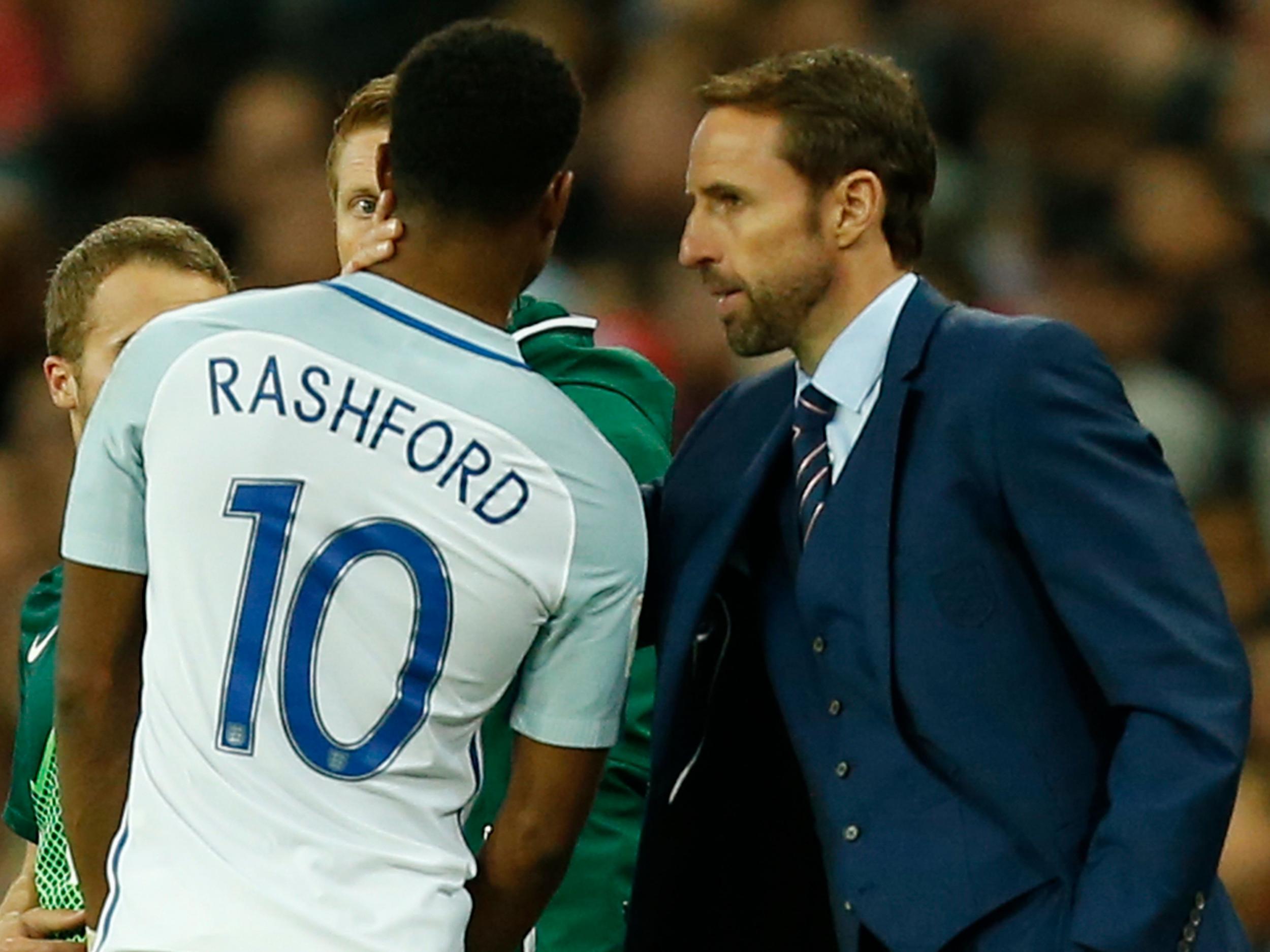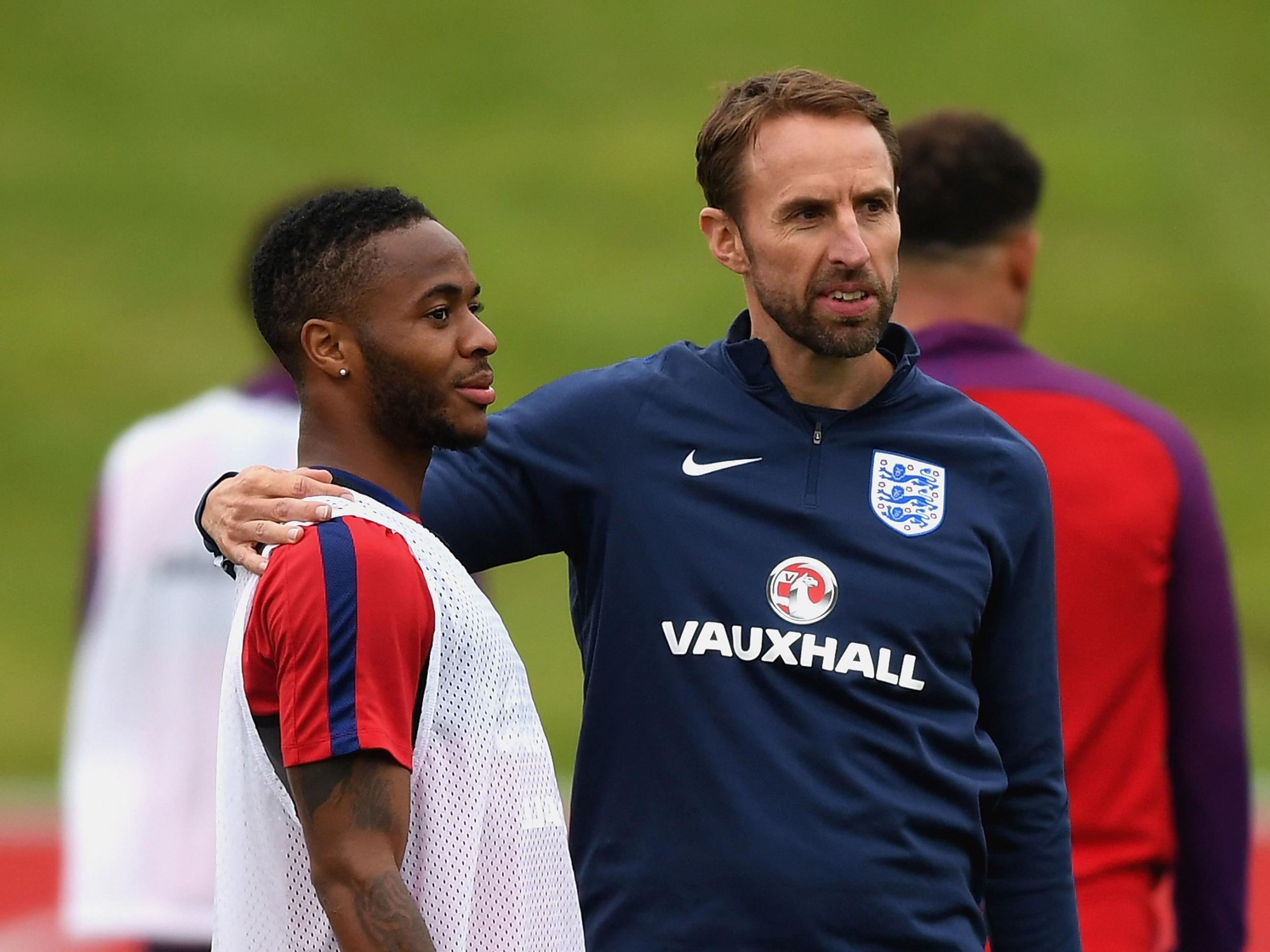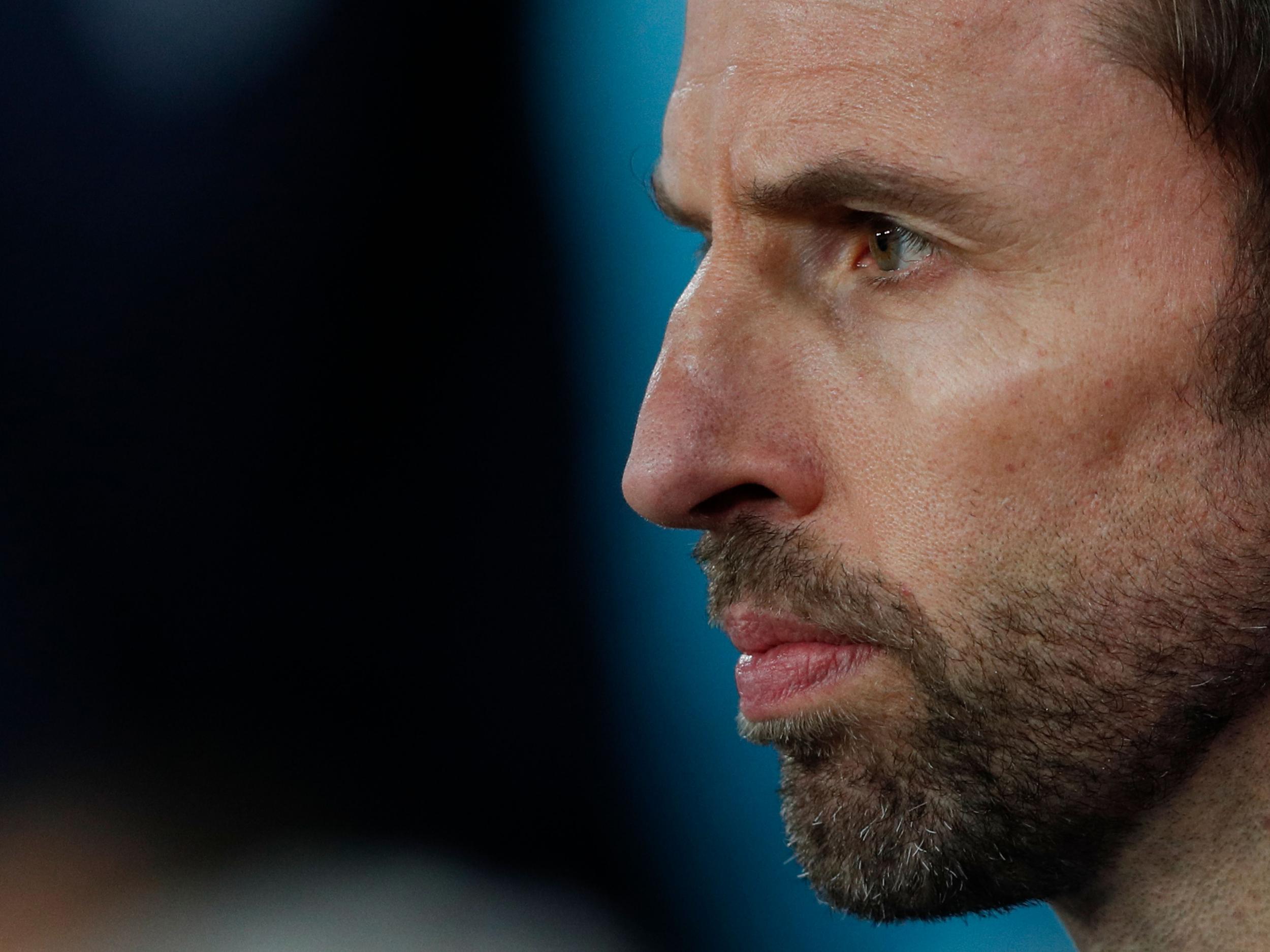England have been predictable for too long - Gareth Southgate must go on the offensive to avoid walking same old path
After 15 years of fairly predictable results, performances and football Southgate must find a way to get the most out of the array of attacking talent available to him

If England’s celebrations on qualifying for the World Cup were so notably subdued, one of the reasons was because the dreary performance was so boringly familiar, right down to a lot of the attacking moves. It is one of the most frustrating aspects of watching the national side.
There have been so many games where so many different players seem to be attacking as if on fixed tramlines, leading to almost every attack ending with identikit crossing. England have been that formulaic and predictable for that long, and it undeniably leads into the wider public apathy to the side, as well as the wider debate over what can be reasonable expected from the team in any tournament.
A common factor to that common theme, however, is that ever since Kevin Keegan the Football Association have generally opted for more pragmatic managers prone to this formulaic football. They have been managers who organise there attacks - almost literally - along such lines.
While that is not to say all of England’s problems over the last 17 years have been down to the man in charge, since there is a far grander debate about the exact quality of its squads, this specific problem undeniably is. It is impossible not to think it is why the team just aren’t involved in any epic matches any more, of the type that used to define them throughout the 90s.
This is also Gareth Southgate’s greatest challenge in the job, where he most needs to prove himself, and where he most needs to distinguish himself and break from Roy Hodgson.
The Crystal Palace boss was probably the most pronounced example of this type of manager, and his squads offer the most concrete of examples of this type of approach. Players would regularly complain about how repetitive training was, how uniform the drills were, and it led to a lot of uniformly dull and uninspired performances - especially in tournaments. England became too easy to defend against.
Hodgson famously made his name in Sweden in the 1970s as part of a mini English coaching core there that included Bob Houghton, and their approach - that also included boxy 4-4-2s - had a huge influence on the game there, as well as a young Sven Goran-Eriksson. It is why a line can be traced through from the Swede to Hodgson in many ways, and led to similarly linear football.

The quality of England’s attackers at that time, as well as their experience of the excitement of the 90s, did ensure there was still a residual entertainment to some of Eriksson’s football. That was especially the case in the 5-1 win over Germany and two momentous games at Euro 2004 against France and Portugal. The constrained nature of Eriksson’s general approach became all too conspicuous by the 2006 World Cup, though, resulting in some very dull games and a general feeling that it was time for the Swede to go.
His replacement Steve McClaren was probably England’s most progressive manager since Glenn Hoddle in this regard, but he had other failings that led to his sacking and the appointment of the defence-first Fabio Capello.
The Italian has a pedigree far higher than any other figure that has been in the role since Sir Alf Ramsey and his approach was different to that of Eriksson and Hodgson, but he is still the manager who changed the great AC Milan from the rampant pressing football of Arrigo Sacchi to one almost entirely based on defence. Sure, everyone remembers the 4-0 victory over Barcelona in the 1994 Champions League final but it stood out all the more because so much of their football at that time was so forgetful. It was also something of a conscious strikeback against Barca manager Johan Cruyff’s criticisms that they were a negative team. Capello’s side might have brutally punished him for that, but that didn’t make the Dutch great generally wrong. Milan’s scoring record was, well, minimalist.
Capello’s general approach thereby prolonged this period of pragmatism, or predictability, and was one other reason why England did so little at the 2010 World Cup. In attack, they moved so little.

A lot of this has been evident in Southgate’s football so far - and especially was in the recent games against Malta and Slovenia - but the manager has recognised that, and is well aware it is something he needs to work on. He greatly wants to. Southgate so pointedly lamented England’s lack of fluency after the 1-0 win over Slovenia, and made his dissatisfaction clear.
“Of course we'd have liked to have played more fluidly and scored more goals,” he said. “We had some good individual attacking moments without being able to make the final ball or shot. We have had to find a way of winning of being a bit more savvy because we weren't flowing with the ball, but we do have goal-scorers.
“We have to maximise the capability and abilities we have. Are we going to become Spain in the next eight months? No we're not. But they've got a squad of players who have won league titles and Champions League medals. Until you win things and can prove yourself on that stage, you can't consider yourself in that company. But our lads have a chance to play in that company again now. We feel we know we need to evolve the team. There's a desire to evolve the team.”
There’s also a need to play more evolved football, to get this array of exciting and pacy attackers interchanging and playing off each other in the way they should, in the way that would make this side more exciting and much more of a challenge for opposition sides. It could revitalise so much around England, after 15 years of fairly predictable results, performances and football.
In that regard, qualification needs to be a line in the sand. Southgate needs to forge his own path, so his attackers can too.
Join our commenting forum
Join thought-provoking conversations, follow other Independent readers and see their replies
Comments
Bookmark popover
Removed from bookmarks